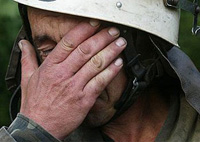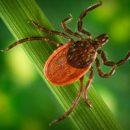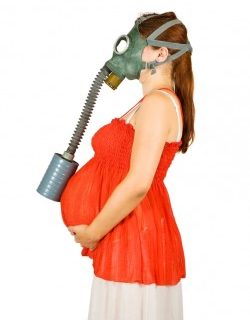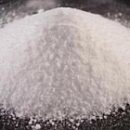What people feel who survived an accident at an altitude of several thousand meters above the Earth? On the peculiarities of stressful reactions of people who survived a plane crash, read this article.
Content
Life after a plane crash: Stewardess
Life after plane crash: passengers
Life after a plane crash: Stewardess
 It is difficult to document the status of stress in passengers after the aircraft accident. One of the reasons for this kind of difficulties is that passengers can live in various parts of the country or even in different parts of the globe, and soon after the accident they usually travel around. However, there is reason to believe that the reactions of people who manifest themselves after such accidents are similar to those that appear after other disasters. This opinion is based partly on the conversations, which were held with those who experienced an accident with people with which you can easily enter into contact after accidents - with members of the aircraft crew.
It is difficult to document the status of stress in passengers after the aircraft accident. One of the reasons for this kind of difficulties is that passengers can live in various parts of the country or even in different parts of the globe, and soon after the accident they usually travel around. However, there is reason to believe that the reactions of people who manifest themselves after such accidents are similar to those that appear after other disasters. This opinion is based partly on the conversations, which were held with those who experienced an accident with people with which you can easily enter into contact after accidents - with members of the aircraft crew.
I was able to talk with a flight attendant as a psychologist, behind which there were over ten years of flight work, during which she had to fall into an accident with catastrophic consequences. She came out of these accidents with small injuries, such as a fracture of a bone or stretching of sprigs.
Nevertheless, many people did not survive, including her close girlfriend. When I talked with her 10 months after the accident, she informed me that during several months after the accident she had a violated ability to focus, and she felt that he could not fulfill their official duties in the next emergency. She was afraid that in the next emergency, maybe, it will try to escape herself, rather than risk their life for the sake of others.
During the conversation, she constantly thought about the accident, just like the probability of such an accident in the future. She did not return to her former work. Even the aircraft flying over it. Its stressful reactions caused by the accident led to the disorder of her marriage, which, in the end, ended with a divorce. Despite the fact that she visited a weekly psychiatrist since the accident, she said, her nightmares. By the time of the conversation of this kind of nightmares happened to her 3-4 times a week. Other symptoms of stress reactions were the reduced prostration threshold, the strengthening of the fatalistic position mixed with the newly formed religious feeling of faith, which, according to her, gave her strength to survive an accident, while others could not succeed.
In another stewardess, with whom I talked, there were the same reactions. During the first four hours following the accident, it suffered several sharp psychosomatic symptoms, including fainting and tunnel narrowing of view (the inability to see objects located on the periphery in relation to the point on which the eyes focused). Symptoms these passed. Within 4-5 days after the accident, it completely lost appetite, which was accompanied by a severe form of fear of free flying objects.
This condition aggravated two weeks after the accident and lasted about a month. Fear of free flying objects is a feeling of fear that can be connected with any object around us, even with objects that usually do not cause fear. When she was carried on the car home a few days after the accident, she suddenly frightened: it seemed to her that the trees located along the highway were about to start falling on the car.
Formerly before the catastrophe, a weak form of fear of a closed space became sharply intensified due to the accident. The seat belts in the car suddenly seemed too tight, while before any problems associated with seat belts did not arise. After returning home, she moved with a small interval three heavy forms of rhinitis. For about three months, she suffered a common decline. During this period, the implementation of uncomplicated tasks was strongly tired. She had increased sensitivity to external factors - she reacted sharply to loud sounds. She became irritable in relation to others, especially for her husband who did not want her to fly, even before this accident. During the year after the accident, it was in a very depressed state. She never returned to the flight work due to physical injuries.
Life after plane crash: passengers
I had to talk with several passengers, after the accidents experienced accidents with disastrous consequences. They reported similar reactions. Common symptoms of stress are fatigue and decay of forces that can last for several months. Two older people who survived the accident said that before the accident they were in the cheerful state, and after the disaster, if they are simply just go to the store to go to the store, they are forced to sit somewhere and staying through a few hours before returning home.
In some people in stressful states, a reaction may appear, bordering the actions in this way, which pose a threat to the victim himself. Such an image of action is changing from abuse of alcohol and drugs to suicide.
So, some members of the crew of vessels who were shipwrecked, after the accident began to drink hard, it is quite natural to assume that some of the survivors in the aviation catastrophe may also be prone to this case and other species of actions threatening. While some people can be recommended a relaxed atmosphere as an acceptable way to control acute stress reactions immediately after the accident, in a long term, more appropriate treatment strategies can be developed only on the basis of an individual approach to the affected. In some cases, people themselves are able to choose ways to overcome stressful state, while others need professional help of doctors.
 It is difficult to document the status of stress in passengers after the aircraft accident. One of the reasons for this kind of difficulties is that passengers can live in various parts of the country or even in different parts of the globe, and soon after the accident they usually travel around. However, there is reason to believe that the reactions of people who manifest themselves after such accidents are similar to those that appear after other disasters. This opinion is based partly on the conversations, which were held with those who experienced an accident with people with which you can easily enter into contact after accidents - with members of the aircraft crew.
It is difficult to document the status of stress in passengers after the aircraft accident. One of the reasons for this kind of difficulties is that passengers can live in various parts of the country or even in different parts of the globe, and soon after the accident they usually travel around. However, there is reason to believe that the reactions of people who manifest themselves after such accidents are similar to those that appear after other disasters. This opinion is based partly on the conversations, which were held with those who experienced an accident with people with which you can easily enter into contact after accidents - with members of the aircraft crew.









